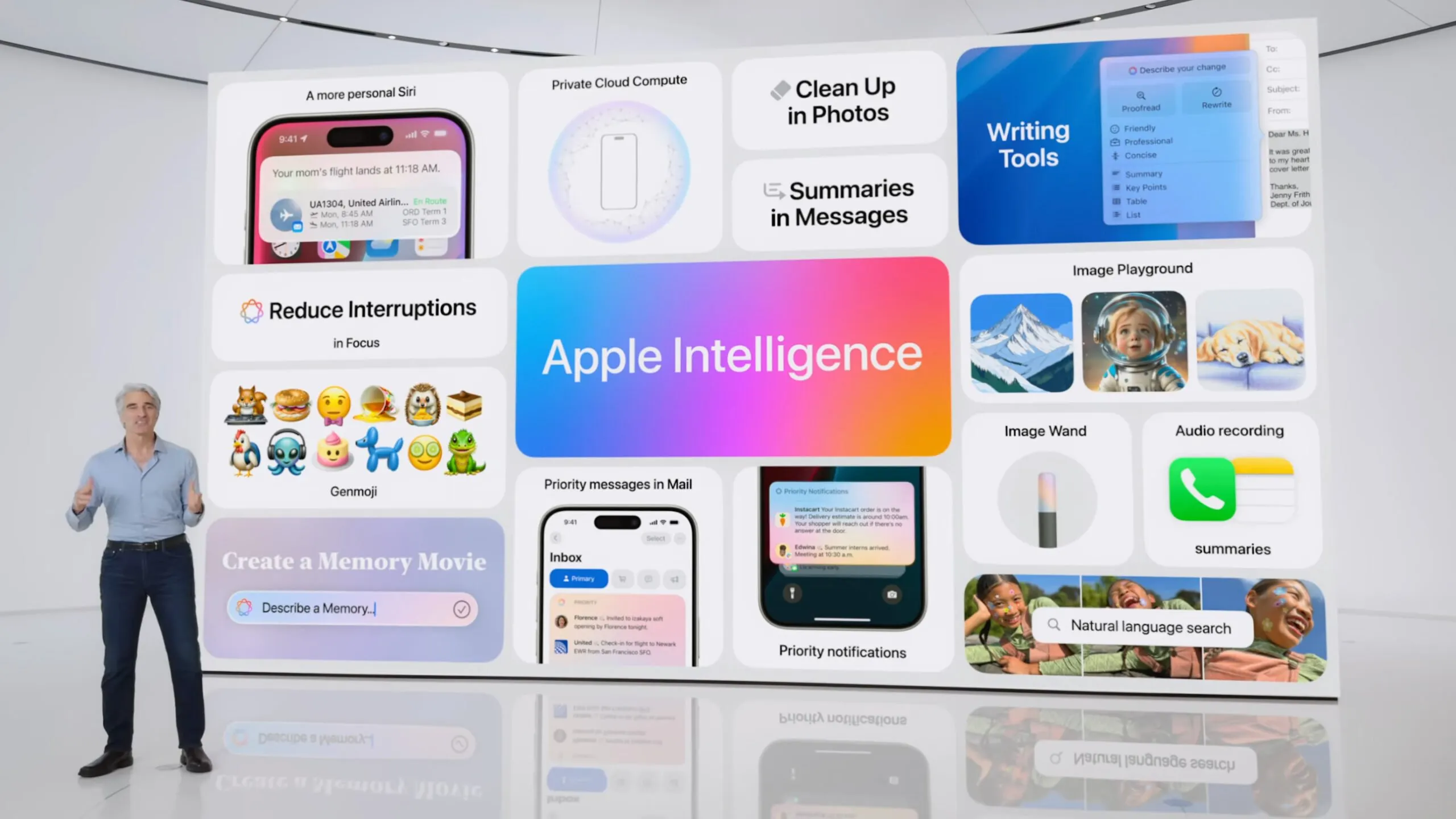Apple is bringing ChatGPT to Siri, the company announced during its annual WWDC conference on Monday. Apple confirmed a long-rumored partnership with OpenAI as a key part of its new “Apple Intelligence” upgrades coming to iOS 18, MacOS 18, and macOS Sequoia. It represents the biggest overhaul to Apple's digital assistant since it was introduced in 2011.
Apple users will be able to use OpenAI’s leading toolset, including its latest ChatGPT-4o AI model, across their Apple devices—but Siri will ask for permission, first.
“We built support into Siri, so Siri can tap into ChatGPT’s expertise when it might be helpful for you,” Apple Senior Vice President of Software Engineering Craig Federighi said during the presentation. “You will be able to access ChatGPT for free without creating an account, and your request and information will not be logged.”
“For ChatGPT subscribers, you'll be able to connect your account and access paid features right within our experiences,” he added.
Speculation around Apple’s generative AI ambitions has steadily increased since their iPad Event in May, leading up to WWDC, including rumors of an OpenAI partnership. Anticipation of the Apple AI push at WWDC pushed the company's stock price near an all-time high, reaching $195 early Monday.
“We're excited to partner with Apple to bring ChatGPT to their users in a new way,” OpenAI CEO Sam Altman said in a separate announcement. “Apple shares our commitment to safety and innovation, and this partnership aligns with OpenAI's mission to make advanced AI accessible to everyone.”
very happy to be partnering with apple to integrate chatgpt into their devices later this year!
think you will really like it.
— Sam Altman (@sama) June 10, 2024
The new AI integrations will launch later this year, Apple said, and will be available on the iPhone 15 or later models and computers using Apple proprietary processor chips.
Apple also showed off new ways AI will be added throughout its systems, such as image generation and editing, audio transcription, text summarization and writing assistance across apps, personalized emoji creation, and dozens of new photo and video features. And to deliver these upgrades, the company said its AI features will rely on private cloud computing.
“These models run on servers we've especially created using Apple silicon,” Federighi said. “These Apple silicon servers offer the privacy and security of your iPhone from the silicon on up, draw on the security properties of the Swift programming language, and run software with transparency built in.”
The encryption setup ensures that iPhones, iPads, and Macs will refuse to talk to a server unless its software has been publicly logged for inspection, he explained.
“This sets a brand new standard for privacy and AI and unlocks intelligence you can trust,” Federighi said.
Although Apple has taken steps to support AI development on its hardware and released open-source AI models, it is relatively late in openly embracing generative AI for its massively popular products and services, following wide-ranging AI-powered product releases from Microsoft, Google, and Amazon.
Not all new AI announcements have been greeted warmly, however. Microsoft unveiled a new “Recall” feature that allowed users to find anything they've done on their computers in part through indexing snapshots of users' screens. After backlash, Microsoft reversed course.
“Built in a uniquely Apple way, we think ‘Apple Intelligence’ is going to be indispensable to the products that already play such an integral role in our lives,” Apple CEO Tim Cook said.
Wall Street was not especially impressed by the day's announcements, however, with Apple stock closing slightly down for the day priced at $193.
Edited by Ryan Ozawa.

